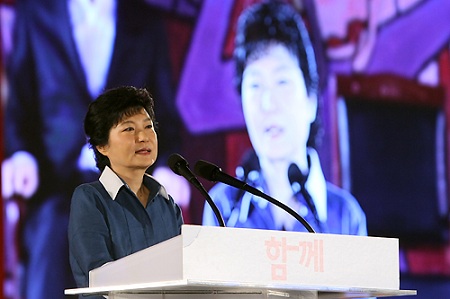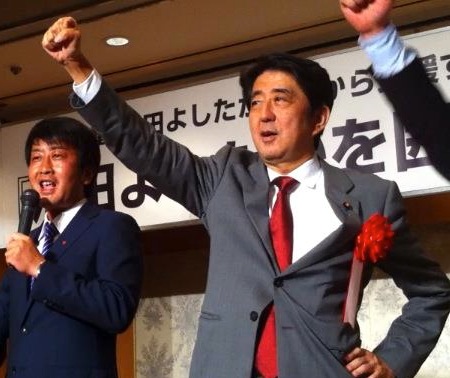It’s hard to understate just how important (if inevitable) it was for South Korean presidential candidate Park Geun-hye to make the following statement earlier this week: ![]()
“Behind our history of miraculous growth, there were the sacrifices of workers who suffered under harsh working environments, and behind our guarding of national security against North Korea there were violations of human rights by public authorities.”
“I once again offer my sincere apologies to the people who suffered wounds and hardship as a result, and to their family members.”
Those words come in relation to the legacy of Park’s father, Park Chung-hee, who took power in a coup in 1961 and held power until his assassination in 1979. Park Chung-hee is credited with lifting South Korea out of poverty in the wake of the Korean War and transforming the South Korean economy into one of the most efficient and developed in Asia. The South Korean economy is today one of the world’s most productive and developed, and it’s certain that Park Chung-hee’s administration deserves credit for that.
But his legacy remains tarnished by authoritarian rule that did not tolerate free speech or dissent of any kind. His regime engaged in political arrests and torture, and his rule morphed into a dictatorship despite promises of making South Korea more democratic. South Koreans, to this day, have incredibly mixed feelings about Park Chung-hee.
As such, the legacy of Park Chung-hee is invariably at the heart of his daughter’s campaign — when Park Guen-hye’s mother was assassinated in 1974, Park Guen-hye essentially took on the role of first lady in lieu of her late mother. Indeed, much of her success comes from a sense of nostalgia among those who see the 1960s and 1970s as a time of unparalleled growth for South Korea. There’s no question of South Korea turning back from democracy, which has been entrenched in South Korea since the 1980s, but there is a sense that South Korean voters have wanted Park Guen-hye to acknowledge and transcend the darker aspects of Park Chung-hee’s legacy.
In the past, as recently as earlier this month, Park Geun-hye has been both dismissive and defensive over the less noble aspects of her father’s regime. In making the apology, Park Geun-hye, also showed a rare emotional side:
“I’m sure all of you know how difficult it is in this country for a child to judge his or her parents, and especially to make a public statement about their misdeeds. I do not think that the people of Korea really want me, a daughter, to spit on her father’s grave,” she said.
East Asian politics is not known for its “I feel your pain” politicking, but Park Guen-hye has a particularly formal and stiff image even by East Asian standards. Continue reading Park’s apology marks milestone in Korean presidential race

